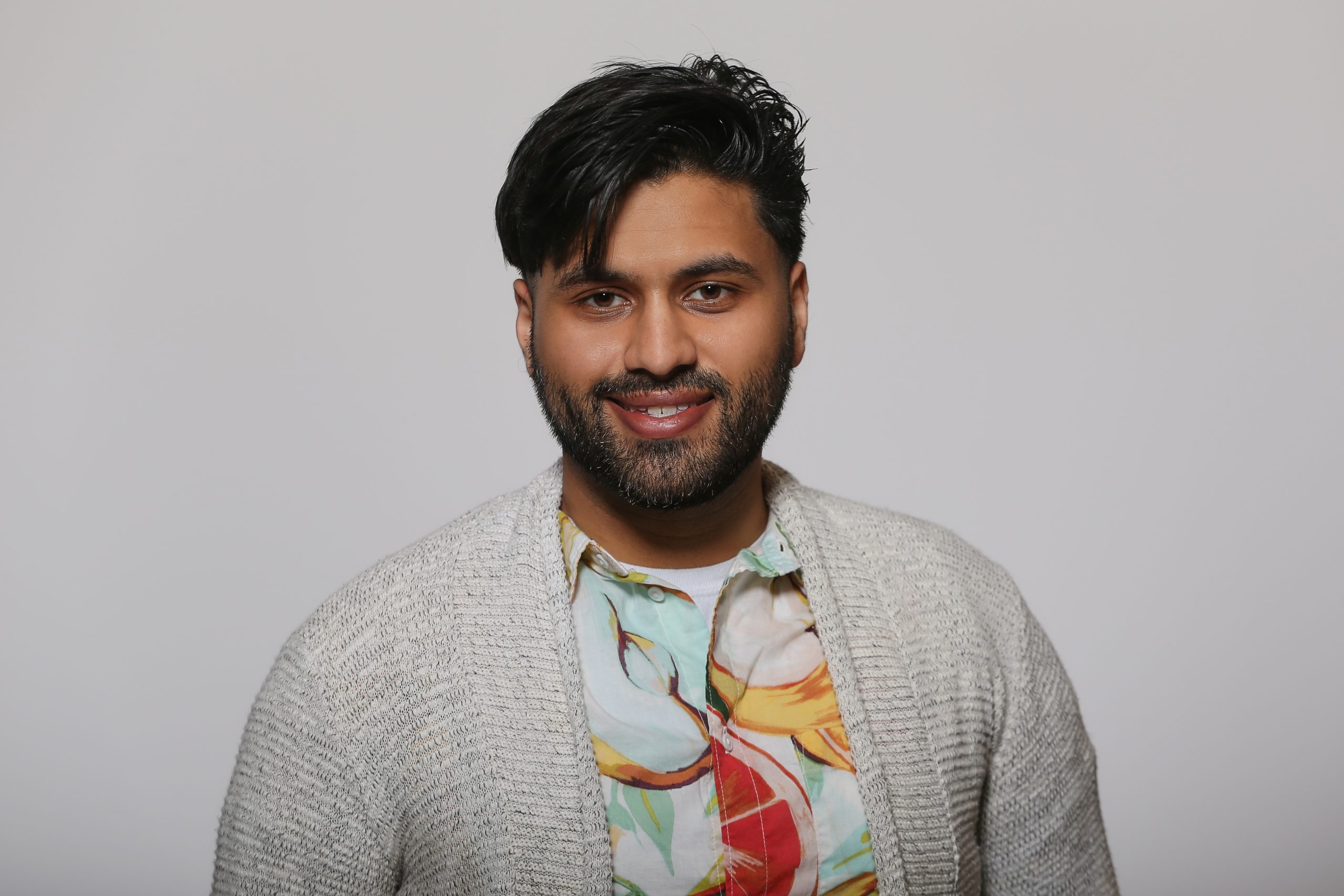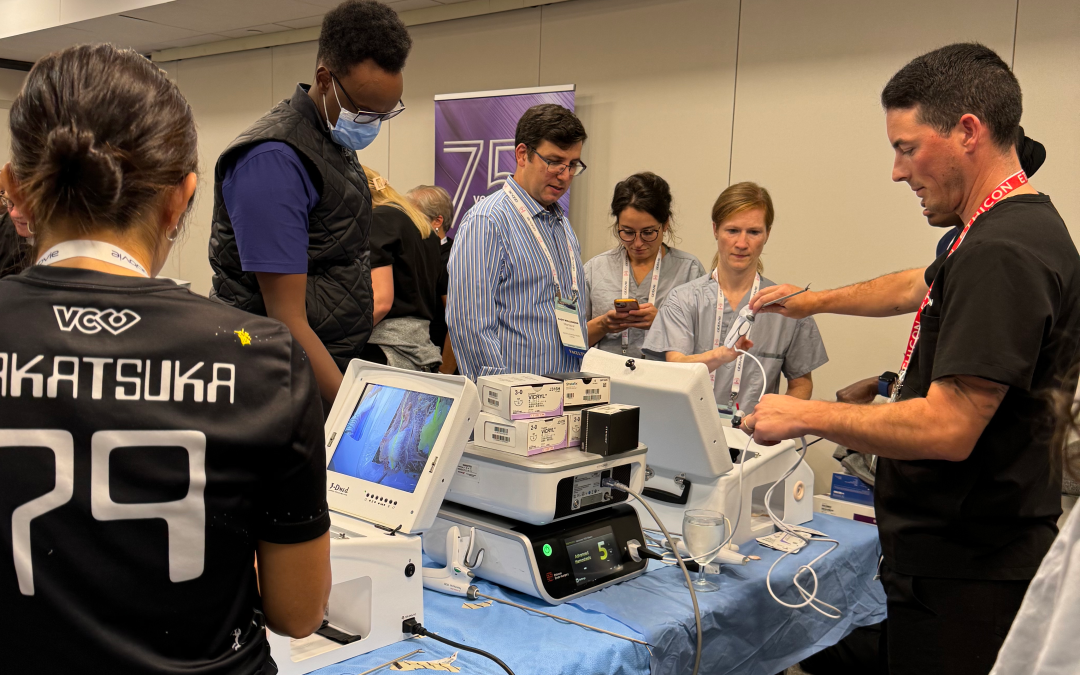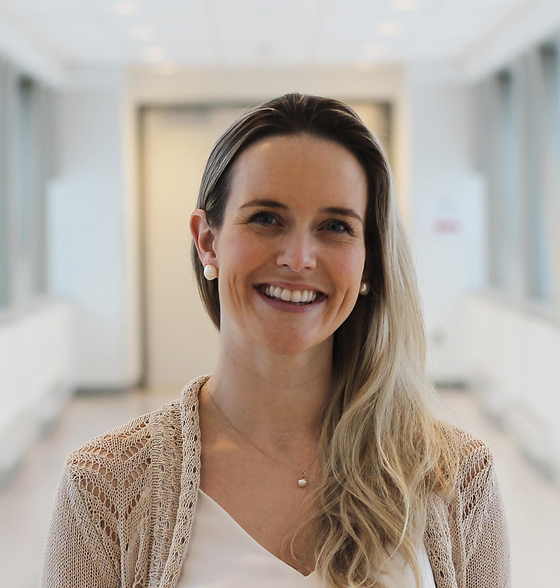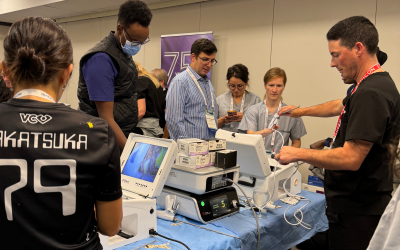You were faculty at the MIGS fellows boot camp at last year’s CanSAGE conference, and this year you’ll be serving as one of the boot camp’s co-directors. What was your experience like last year?
Last year, I was asked to present on pelvic floor trigger-point injections, which is a technique done to assist patients with chronic pelvic floor pain or pelvic floor myalgia. I was asked by Dr. Siddhi Mathur, who is one of the boot camp co-directors as well as a colleague and a close friend of mine.
When she asked me to present on this topic, I felt passionate about sharing this technique, which I learned from a Urologist to the growing MIGS community. I felt very lucky to be able to do that, because there is a gap in treating and managing chronic pelvic pain from a pelvic floor focus. It was really exciting to see the level of enthusiasm and the educational value of it based on fellow feedback.
I’m only two years removed from graduating from my own fellowship, so I resonate with the learning goals of the fellows and can share in their challenges and uncertainties. It was great to have the ability to not only mentor but also to learn from the Faculty and fellows in a reciprocal learning environment. Furthermore, it was energizing to be part of the community that is built around the fellowship boot camp.
What made you decide to return this year as co-director?
I really was inspired by working with the 2024 co-directors and how passionate they were about teaching and taking on a mentorship role with the fellows. In fellowship, you’re consistently in that training mentality, so when you graduate, you don’t realize right away that there are people now who are more junior in their training who could benefit from your knowledge, skills and mentorship. Participating in the bootcamp reminded me of this opportunity to give back.
Finally, I see this as an opportunity for further growth and development both personally and professionally.
What do you think attendees might take away from coming to boot camp?
The bar is set really high from last year’s boot camp events. I have heard first-hand from fellows across the country how well organized it was, with a good mixture of didactic and hands-on learning opportunities.
For this year, we’re still in the planning stages, but I know it will be a fantastic event where the fellows will be able to gain knowledge, technical skills, and professional skills, but also the soft skills that are needed for MIGS practice. We’re excited to be hosting the second annual cadaver lab in Cincinatti sponsored by J&J where fellows will have the opportunity to learn, practice and grow their skills. Additionally, we’ll be hosting a carefully curated pre-conference bootcamp in Saskatoon.
These events will also be a great opportunity to network and experience build among fellows and to have fun outside of the busy life of fellowship. You’ll be amongst your peers, so you will have the chance to meet fellows from across the country and build friendships. It will be a low-stress, low-intimidation learning environment for fellows. We hope to see you there!
Can you tell us a bit about your own fellowship experience? Where did you complete your fellowship, and what makes the program unique?
I did my fellowship at McMaster University in Hamilton, and I’m now one of the supervisors in the same program, so it is kind of full circle for me.
Our fellowship trains gynecologic surgeons and sonologists that see and treat a variety of complex gynecologic diseases. Some key highlights of our fellowship program are advanced laparoscopy training in complex, multidisciplinary endometriosis care, chronic pelvic pain, and ultrasound. We have a large catchment area of patients, and we get referrals from across the country for our unique services, which include advanced ultrasound diagnosis and periop planning and chronic pain treatment. As a tertiary center we get referrals for complex obstetrics cases like placenta accreta and fertility enhancing surgeries like cervicoisthmic cerclages and isthmocele repairs.
Beyond the medicine, it is a great place to work with good colleagues and support staff. I’m really happy and lucky to work in the centre where I trained, not only because it is home for me, but also because it’s a great place for solid patient care and education.
Why did you decide to get involved with CanSAGE?
After residency, I didn’t know what fellowship I wanted to do. I was a late bloomer in the MIGS community. I didn’t really fit in per se because I hadn’t done many MIGS electives and wasn’t familiar with the field as intimately.
But through the CanSAGE conferences, I have been able to network and meet people from across the country, which has really made me feel like part of the MIGS community. It is a close community of really passionate people. The obvious passion is infectious and has helped me as a clinician and professionally. Mentors in this community have inspired me to take on research projects and to take on leadership roles in different capacities.
CanSAGE is an important organization that serves to grow awareness of the needs of an often in need/vulnerable patient population. I’m very passionate about advancing gynecologic care and my professional goals are aligned very intimately with what CanSAGE stands for in advancing gynecologic surgical care for patients.







